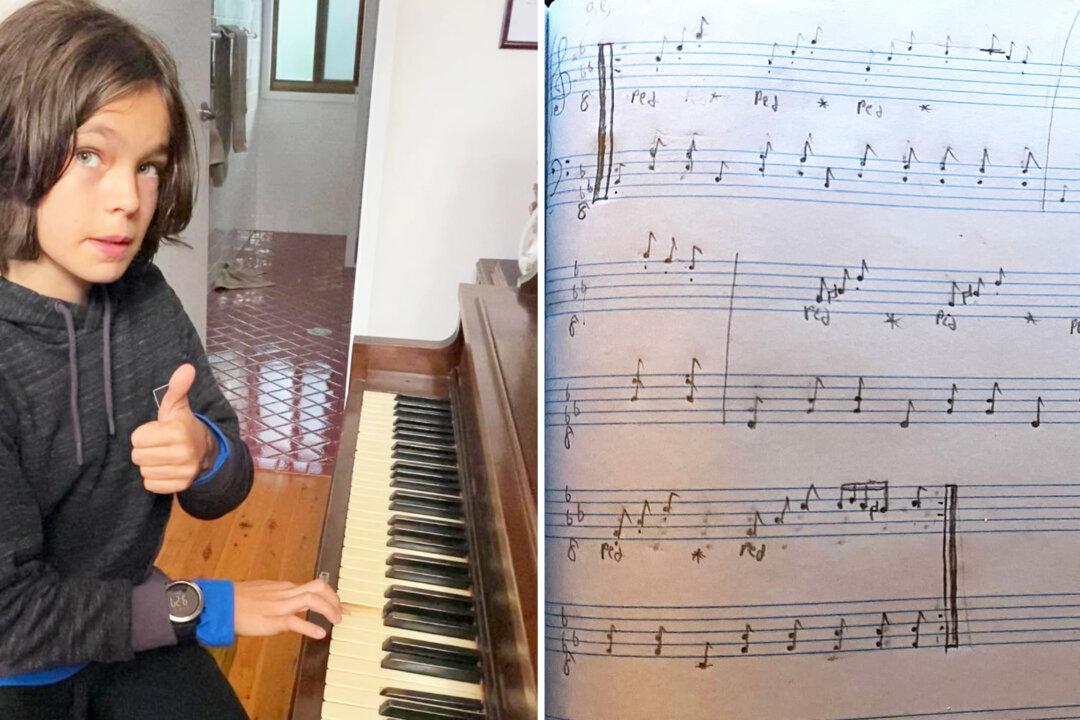After her 12-year-old son died suddenly in a freak accident, an Australian mom of two found his exercise book in a bag by his favorite spot: the piano. He had started composing a song.
With the help of the internet, mom Amanda Brierley from Queensland had the song finished, and performed, by individual musicians and orchestras around the world in memory of her son.





